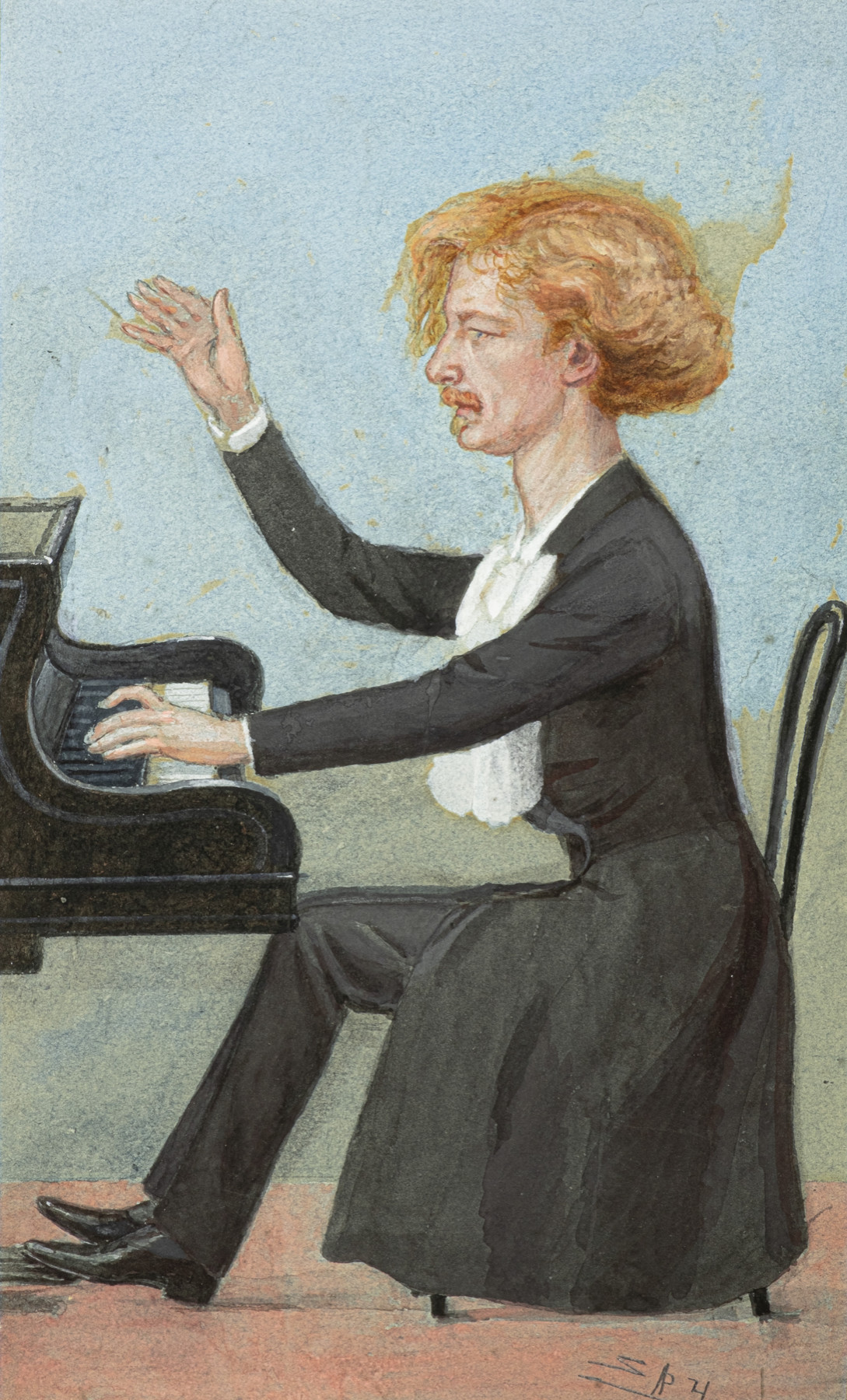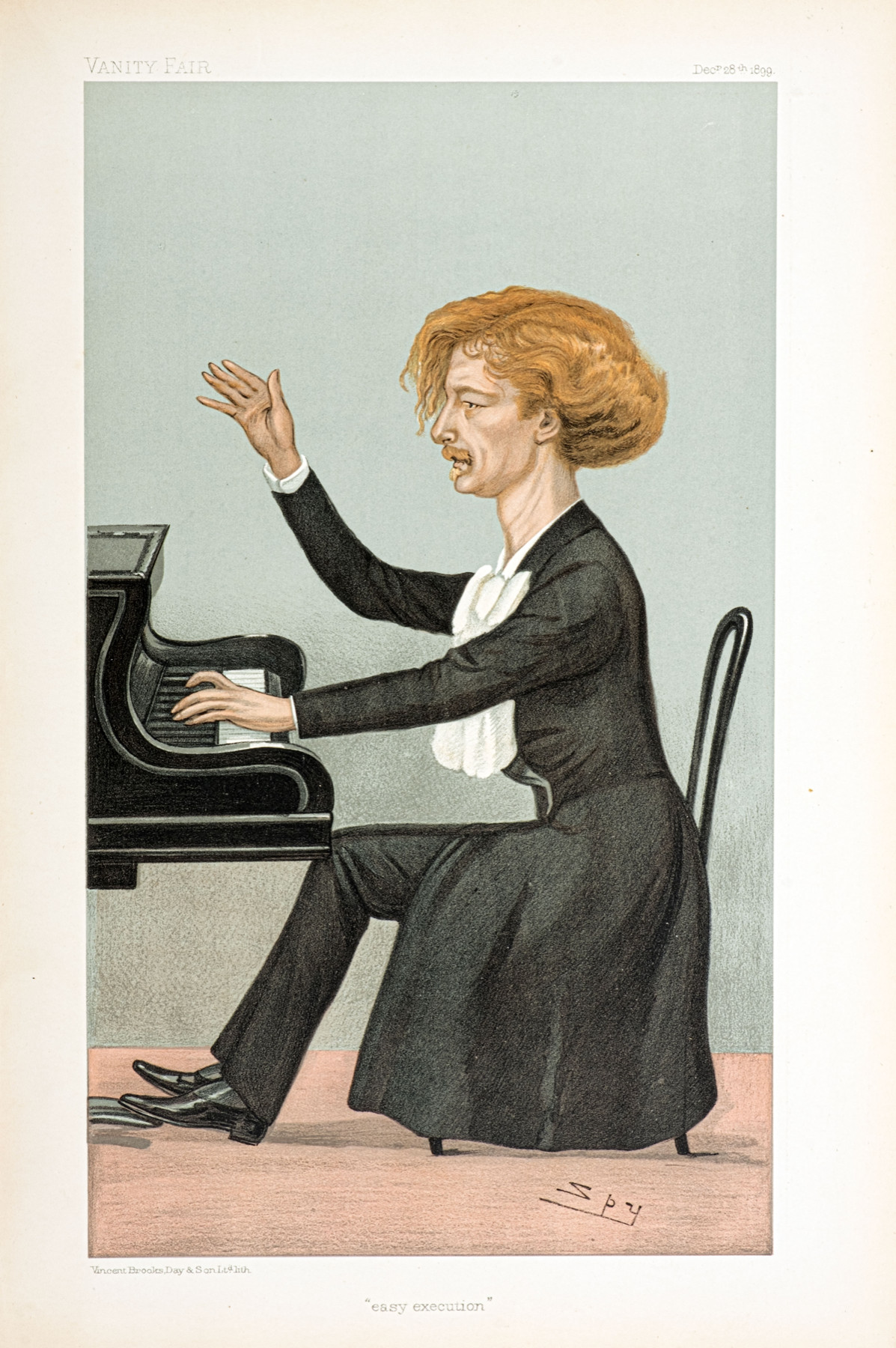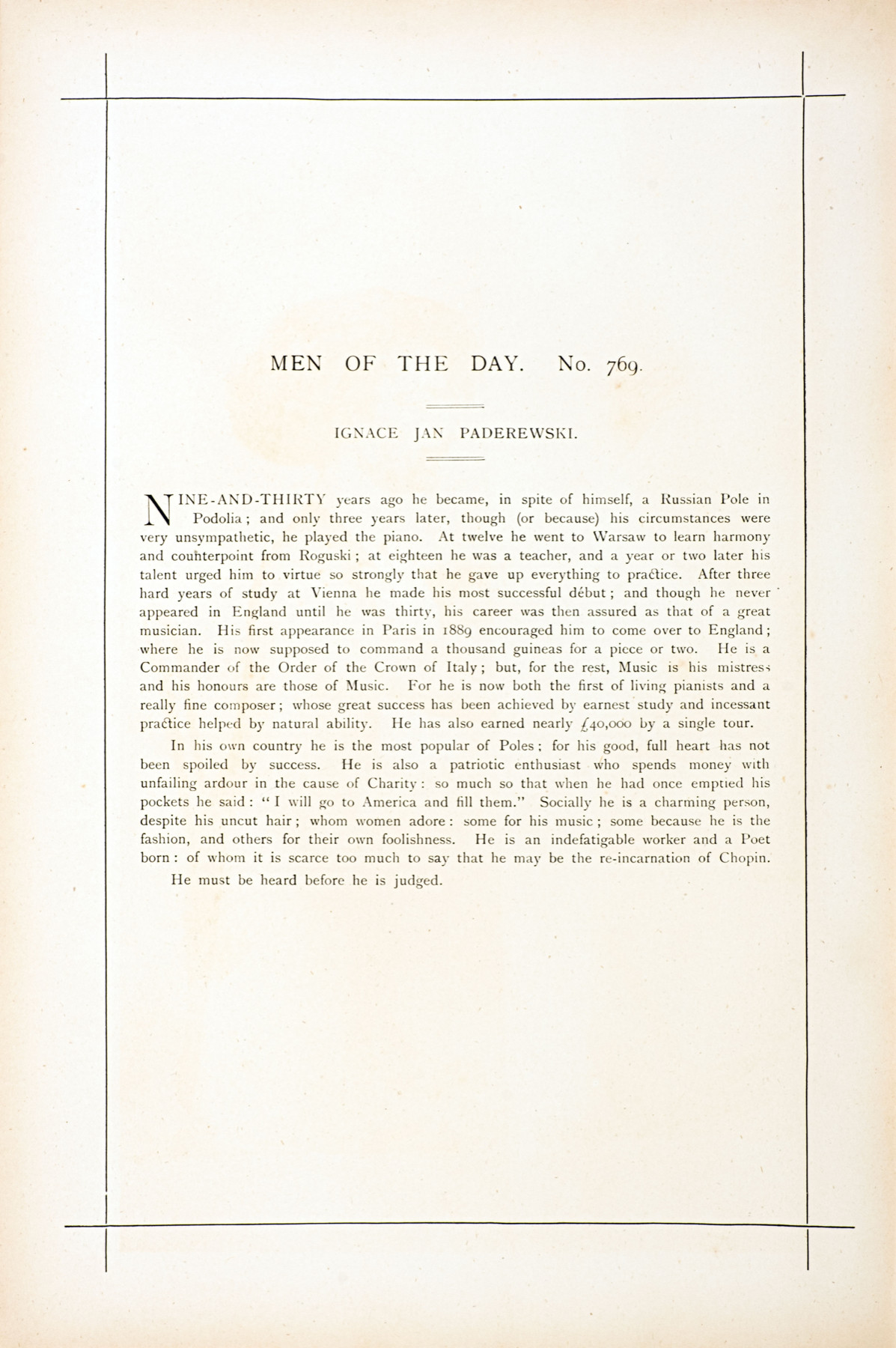


At the time of his portrayal in Vanity Fair, Ignacy Paderewski (1860-1941) was a world renowned pianist and composer, perhaps best known for the composition ‘Minuet in G’. A lifelong spokesman for Polish independence, Paderewski was appointed Prime Minister and Minister of Foreign Affairs of the newly independent Poland at the end of the First World War.
“Nine-and-thirty years ago he became, in spite of himself, a Russian Pole in Podolia; and only three years later, though (or because) his circumstances were very unsympathetic, he played the piano. At twelve he went to Warsaw to learn harmony and counterpoint from Roguski; at eighteen he was a teacher, and a year or two later his talent urged him to virtue so strongly that he gave up everything to practice. After three hard years of study at Vienna he made his most successful début; and though he never appeared in England until he was thirty, his career was then assured as that of a great musician. His first appearance in Paris in 1889 encouraged him to come over to England; where he is now supposed to command a thousand guineas for a piece or two. He is a Commander of the Order of the Crown of Italy; but, for the rest, Music is his mistress and his honours are those of Music. For he is now both the first of living pianists and a really fine composer; whose great success has been achieved by earnest study and incessant practice helped by natural ability. He has also earned nearly £40,000 by a single tour.
In his own country he is the most popular of Poles; for his good, full heart has not been spoiled by success. He is also a patriotic enthusiast who spends money with unfailing ardour in the cause of Charity: so much so that when he had once emptied his pockets he said: ‘I will go to America and fill them.’ Socially he is a charming person, despite his uncut hair; whom women adore: some for his music; some because he is the fashion, and others for their own foolishness. He is an indefatigable worker and a Poet born: of whom it is scarce too much to say that he may be the re-incarnation of Chopin.
He must be heard before he is judged.”